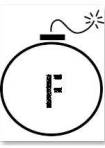It’s a dark afternoon. It’s freezing outside, and I can’t seem to sell anything. Times like this, my mind goes back to sunnier days, when I was the turtle-catching king of the world.
 At age 12, Robroy was incredibly lucky. We had our own private pond in the back yard, and it was stocked with turtles. My younger brother Jim and I used to chase them on hot summer days in our canoe. As we came close, they slipped off the log and vanished into the murky gold, but that never stopped us. The trick was to scoop about 3 feet ahead of where you thought they were going. By the time you got your net under water, they would swim right into it. If your timing was right. If your aim was true.
At age 12, Robroy was incredibly lucky. We had our own private pond in the back yard, and it was stocked with turtles. My younger brother Jim and I used to chase them on hot summer days in our canoe. As we came close, they slipped off the log and vanished into the murky gold, but that never stopped us. The trick was to scoop about 3 feet ahead of where you thought they were going. By the time you got your net under water, they would swim right into it. If your timing was right. If your aim was true.
One summer day after church, rather than go inside with the rest of the family, my dad and I walked around back to take a look at the pond, as we often did. Now, my dad was a salesman — still is — and he could talk. So I’m standing on the bank, listening to him explain an idea he was wrestling with, gazing at the water, when all of a sudden I see a shadow rise from below. It was about 4 feet off shore. A turtle pierced the surface with his snout.
Without a moment’s hesitation, I leaped. He turned and angled for the bottom. But my timing was perfect. My aim was true. I crashed onto the water with my hands clutching down onto him.
Too easy! Skimming along the muck with him swimming in my hands, I was laughing inside. I decided to stay down as long as I could, just to make a bigger impression on my dad. When I could hold my breath no longer, I burst to the surface, raising the turtle in both hands. Dad’s eyes were round as two robin’s eggs.
“You nut!” he shouted. “I don’t believe it!”
“He put up a — hulluva — fight!” I gasped.
Dad grabbed my elbow and helped me out of the water and up the bank, laughing and clapping me on the back. “Wait till your mother and brother see this!” he said. “Cynthia! Jim! Get out here!”
As he dragged me squishing in my church clothes toward the house with the turtle swimming in my hands, I felt wet and muddy and very, very satisfied.
♥ ♥ ♥
Back then, I knew the value of training. Anticipating. Recognizing the opportunity. Of diving in, giving it your all and landing the deal. And most importantly, I knew the value of communicating, sharing success and being joyful.
And that means I can do it. Of course I can do it! It’s really just a matter of doing it again.
I reach out and grab the phone.
Wait til Dad hears about this one.
(read more posts below)







 This surprised me. I wondered if it came from assignments I read aloud in our English class, like the one about my favorite sport, hockey. In that essay, I described the goaltender’s gear: He wears oversized leg pads. Protection for his abdomen, chest and shoulders. A large rectangular forearm blocker, and a padded catcher’s mitt. He has a helmet, chin guard and facemask. In fact, except for an inch and a half of neck, the goalie’s entire body is completely protected.
This surprised me. I wondered if it came from assignments I read aloud in our English class, like the one about my favorite sport, hockey. In that essay, I described the goaltender’s gear: He wears oversized leg pads. Protection for his abdomen, chest and shoulders. A large rectangular forearm blocker, and a padded catcher’s mitt. He has a helmet, chin guard and facemask. In fact, except for an inch and a half of neck, the goalie’s entire body is completely protected.
 The “So what?” man is your potential customer. He says “So what?” because he is laser focused on what’s most important to him — and you didn’t bring it. Price is not his kryptonite. Your failure to communicate is.
The “So what?” man is your potential customer. He says “So what?” because he is laser focused on what’s most important to him — and you didn’t bring it. Price is not his kryptonite. Your failure to communicate is.